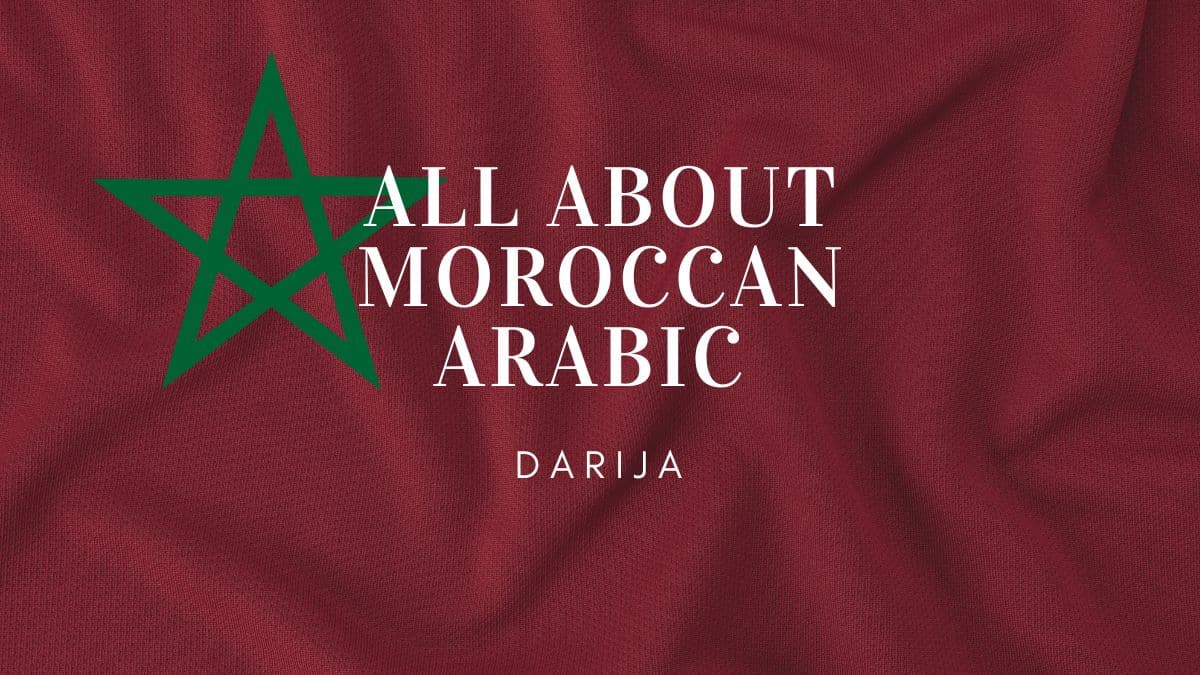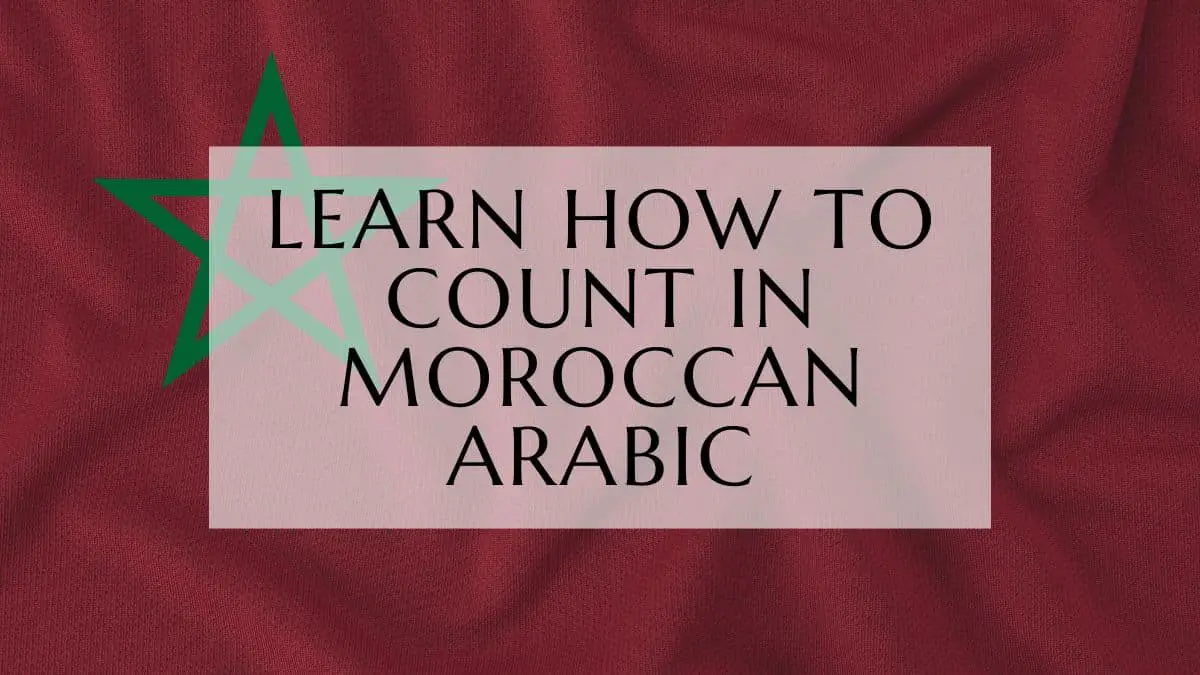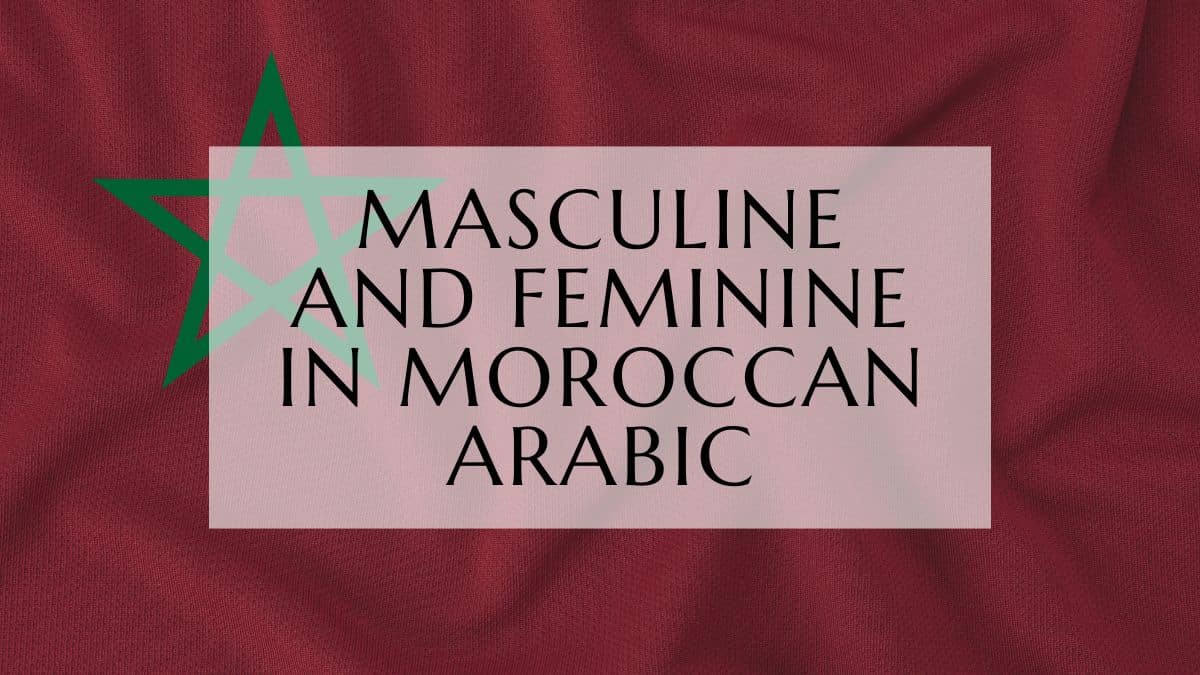Expressing gratitude is key in any language, including Moroccan Arabic (Darija). It’s important for language learners and native speakers alike. Learning to say “thank you” can help you connect better with others and build strong relationships. This guide will show you different ways to say thanks in Moroccan Arabic, from formal to casual phrases.
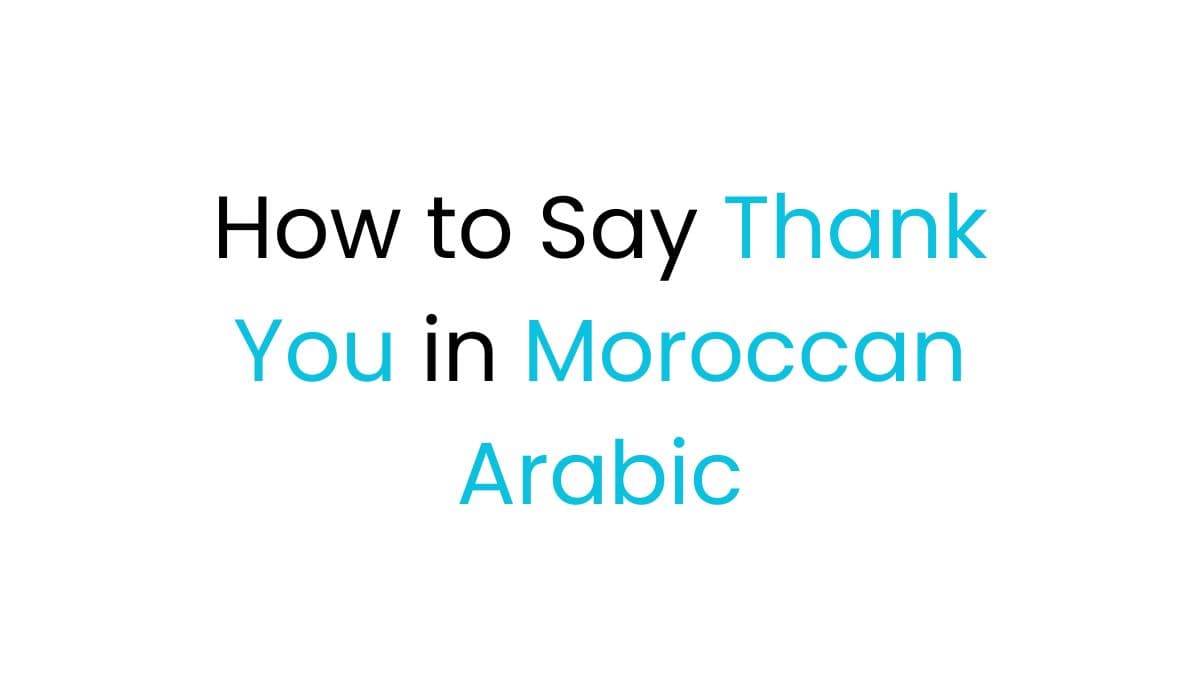
Formal Ways to Express Gratitude
When you want to say thanks in Moroccan Arabic, there are many formal ways to do it. These phrases show your appreciation, politeness, and formal thank you skills.
“شكرا حيت عاونتيني” (shukran hit ‘awentini / Thank you for your help) is a great phrase. It’s perfect for work or business settings. It shows you value their time and focus.
“أنا متشكر / متشكرة” (ana meshekker / metshekkra / I’m very thankful) is another formal way to say thanks. It shows deep appreciation and respect. It’s good for big events or when talking to people in charge.
“كنشكرك من كل قلبي” (kanshekrek men kol qalbi / That’s very kind of you) is a nice way to say thanks. It also praises the person for being kind or generous. This is great for formal chats or when someone helps you a lot.
Learning these formal thank you phrases can make you seem more polite and appreciative in Moroccan Arabic-speaking places. It leaves a good impression.
Informal Expressions for Saying Thanks
When you want to say thanks in Moroccan Arabic, there are many informal ways to do it. These expressions add warmth and make your thanks more personal. From “شكرا” (shukran / Thanks/Thank you) to “شكرا بزاف” (shukran bezzaf / Thank you very much) and “شكرا حيت عاونتيني” (shukran hit ‘awentini / Thanks a million), these phrases are perfect for everyday talks.
شكرا (shukran / Thanks/Thank you)
“شكرا” (shukran / Thanks/Thank you) is a simple yet powerful way to say “thank you” in Moroccan Arabic. It works well in both formal and casual settings. It’s a key phrase for showing thanks for any favor, big or small.
شكرا بزاف (shukran bezzaf / Thank you very much)
If you want to show more excitement and appreciation, “شكرا بزاف” (shukran bezzaf / Thank you very much) is ideal. This phrase adds warmth and shows you really value what someone did for you.
شكرا حيت عاونتيني (shukran hit ‘awentini / Thanks a million)
For times when “Thank you” isn’t enough, “شكرا حيت عاونتيني” (shukran hit ‘awentini / Thanks a million) is great. It shows deep thanks and is often used for big acts of kindness or support.
These phrases are not just for everyday thanks. They make you sound more natural and like a native speaker when you’re being casual. Adding these phrases to your Moroccan Arabic vocabulary helps you connect with people in a real way.
Unique Moroccan Ways Of Saying Thank You
Say shukran and add any of these: allah ihafdek, allah ijazik belkhir, barakallah fik
| Word | Transcribed | Meaning |
| الله يحفظك | allah ihafdek | may God protect you |
| الله يجازيك بالخير | allah ijazik belkhir | may God reward you with good things |
| بارك الله فيك | barakallah fik | may God give you Baraka |
Barakallah fik means: may God give you Baraka, I will give you an example of Baraka, when you do many good things in a short period of time you say, your time has Baraka
Moroccans don’t just say “thank you”, it’s a chance to pray for people and wish them good as a way of gratitude, isn’t that beautiful?
Expressing Deep Gratitude in Moroccan Arabic
When you want to show deep thanks, Moroccan Arabic has many ways to express it. These phrases go beyond just saying “شكرا” (shukran / Thank you). They let you show your true feelings in a powerful way.
كنشكرك من كل قلبي (kanshekrek men kol qalbi / I thank you from the bottom of my heart)
This phrase means “I thank you from the bottom of my heart.” It’s great for showing sincere appreciation for someone’s kindness or help. Use it when you’re really thankful for something big.
ما عنديش لكلمات باش نشكرك (ma’ndish lkelmat bash nshekrek / I have no words to thank you)
If you can’t find the right words to say thanks, this phrase is for you. It says “I have no words to thank you.” It shows how much someone’s help or support has touched you.
Using these phrases is great when someone has done something extra special. They help you show your sincere appreciation clearly. Your words will really show how much you’re grateful beyond measure.
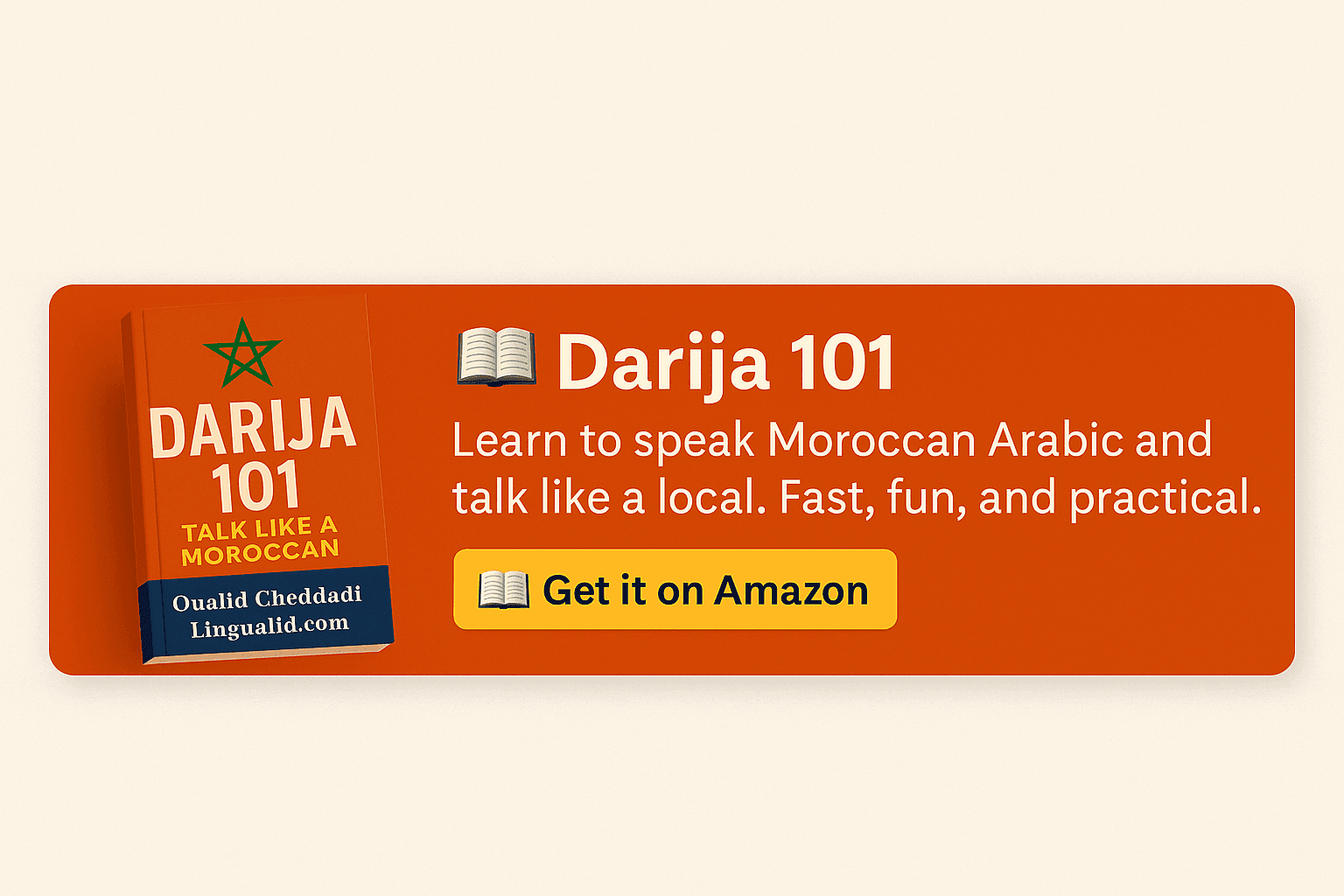
Thank You in Moroccan Arabic
Saying thank you is key in any language, and Moroccan Arabic is no different. Whether you’re visiting a Moroccan Arabic-speaking country or connecting with the community, knowing how to say “thank you” in Moroccan Arabic is helpful. We’ll look at different ways to show thankfulness in Moroccan Arabic here.
The most common way to say “thank you” is شكرا (shukran). It’s simple yet powerful, fitting for both formal and casual situations. For a stronger thank you, say شكرا بزاف (shukran bezzaf), which means “thank you very much.”
To show deep thanks, try phrases like كنشكرك من كل قلبي (kanshekrek men kol qalbi / I thank you from the bottom of my heart). This means “I thank you from the bottom of my heart.” Or say ما عنديش لكلمات باش نشكرك (ma’ndish lkelmat bash nshekrek / I have no words to thank you).
For certain situations, you can adjust your thanks. For instance, شكرا حيت عاونتيني (shukran hit ‘awentini / thank you for your help) means “thank you for your help.” شكرا بزاف (shukran bezzaf) thanks for a gift or kind act.
The verb شكر (shukr) means “to thank” or “to appreciate.” You can use it with object pronouns for more emphasis, like كنشكرك (kanshekrek / I thank you), which means “I thank you.”
With this knowledge of how to say thank you in Moroccan Arabic, Moroccan Arabic thank you phrases, and Moroccan Arabic gratitude expressions, you’re ready to express thanks in Moroccan Arabic with ease.
Thanking for Specific Situations
Gratitude is key in the Moroccan Arabic-speaking world for building strong relationships. Saying “شكرا” (shukran / thank you) is good for many situations. But, making your thanks fit the situation shows you care more and feel truly thankful.
شكرا حيت عاونتيني (shukran hit ‘awentini / Thank you for your help)
If someone has helped you a lot, saying “شكرا حيت عاونتيني” (shukran hit ‘awentini / Thank you for your help) is a great way to say thanks. This phrase works for many things, like a friend helping with a task or a coworker assisting on a project.
شكرا بزاف (shukran bezzaf / Thank you for the gift)
When you get a gift, it’s important to say thanks. Saying “شكرا بزاف” (shukran bezzaf / Thank you for the gift) shows you value the thought and effort put into it. This is good for thanking someone for a birthday present, a holiday gift, or any other present.
Knowing how to say thank you in Moroccan Arabic for different situations can make you seem more polite and show you’re trying. It helps you connect better with others and shows you really appreciate them. This can make a big difference in how people see you.
Verbs Related to Giving Thanks
Learning to say “thank you” in Moroccan Arabic is more than just using “شكرا” (shukran / Thank you). Moroccan Arabic has many verbs that show deeper thanks. The verbs “شكر” (shukr / to thank) and “قدر” (qedder / to appreciate) are two main verbs for this.
قدر (qedder / To Appreciate)
“قدر” (qedder / To Appreciate) is also key for showing thanks. It means “to appreciate” and is used for thanking someone for their help, kindness, or the good they add to your life. You can say “كنقدر المساعدة ديالك” (kanqedder lmosa’ada dyalek / I greatly appreciate your help) or “كنقدر الصحبة ديالك” (kanqedder sohba dyalek / I appreciate your friendship).
Using these verbs makes your thanks in Moroccan Arabic more meaningful. They help you show you really value someone’s actions or just the good they bring into your life. These Moroccan Arabic verbs for gratitude and verbs to express appreciation make your thanking verb conjugations more sincere.
Responding to “Thank You” in Moroccan Arabic
When someone thanks you in Moroccan Arabic, it’s key to respond well. Saying “بلا جميل” (bla jmil / you’re welcome) is a common way to say “you’re welcome.” It means “it’s nothing” and is used with friends, family, or people you know casually.
For more formal situations, like with a boss or someone you don’t know well, say “ما كاين مشكيل” (ma kayen mushkil / no problem). This means “it’s a pleasure.” You could also say “ما شي شي حاجة” (mashi shi haja / it’s nothing), meaning “there’s no need to thank you.” In informal settings, “ما شي شي حاجة” (mashi shi haja / it’s nothing) or “ما كاين مشكيل” (ma kayen mushkil / no problem) work well too.
Always responding with politeness shows you respect the culture and etiquette. Learning these phrases helps you connect better in Moroccan Arabic-speaking places. It makes your interactions more meaningful and builds stronger relationships.
Oualid Cheddadi is the founder of Lingualid, a platform that inspires independent language learners worldwide, regardless of the language they are learning. The name “Lingualid” is derived from the Portuguese word for “language,” “língua,” and the last three letters of Oualid’s name, “Lid.”

